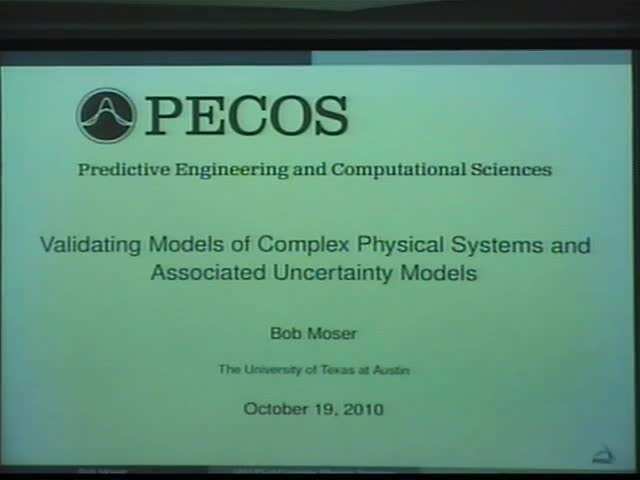Validating models of complex physical systems and associated uncertainty models
Presenter
October 20, 2010
Keywords:
- Uncertainty
MSC:
- 68T37
Abstract
Computational models of complex physical systems are fraught with
uncertainties. These include uncertainties in initial or boundary
conditions, uncertainties in model parameters and/or the experimental
data used to calibrate them and uncertainties arising from
imperfections in the models used in the simulations. Mathematical
models of these uncertainties and their affects on the quantities the
models are intended to be predicted (the quantities of interest or
QoI's) are needed. It is also necessary to assess the ability of the
models to represent both the physics of the phenomena being predicted
and the associated uncertainties, and in particular the ability to
predict the QoI's and their uncertainty. However, in the usual
situation, the QoI's are not accessible for observation, since
otherwise, no computational prediction would be necessary. We thus
must use available or attainable observational data (and estimates of
their uncertainty) to calibrate the models and evaluate the ability of
the models to predict the unobserved QoI's. In this talk, a Bayesian
framework for these calibration and validation processes is proposed
and applied to several examples. However, a number of conceptual and
practical challenges to applying these ideas in complex systems
remain, and will be discussed along with possible approaches to
address these problems.
